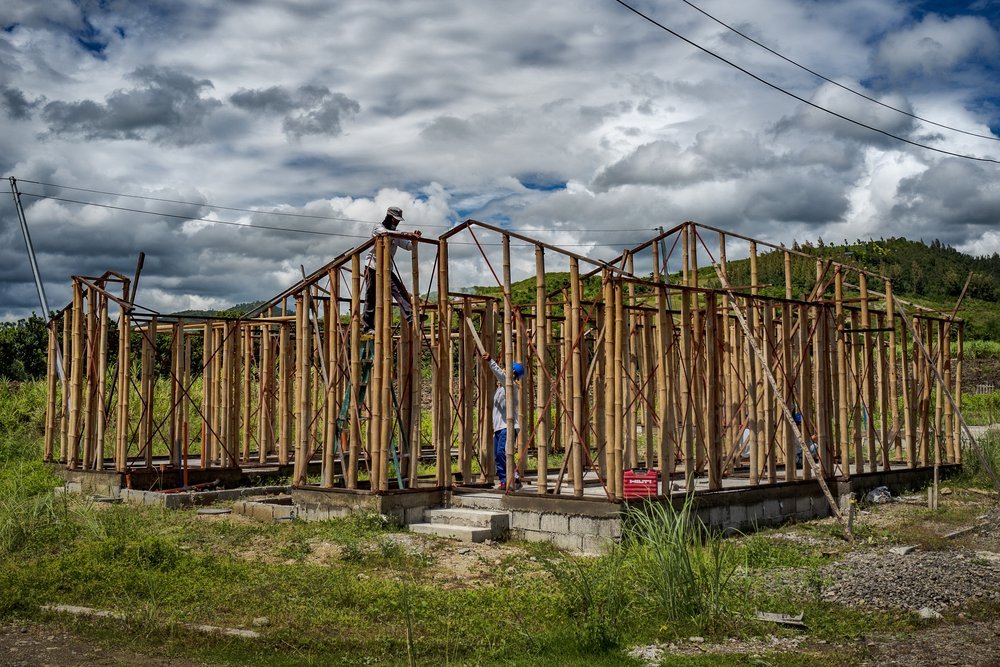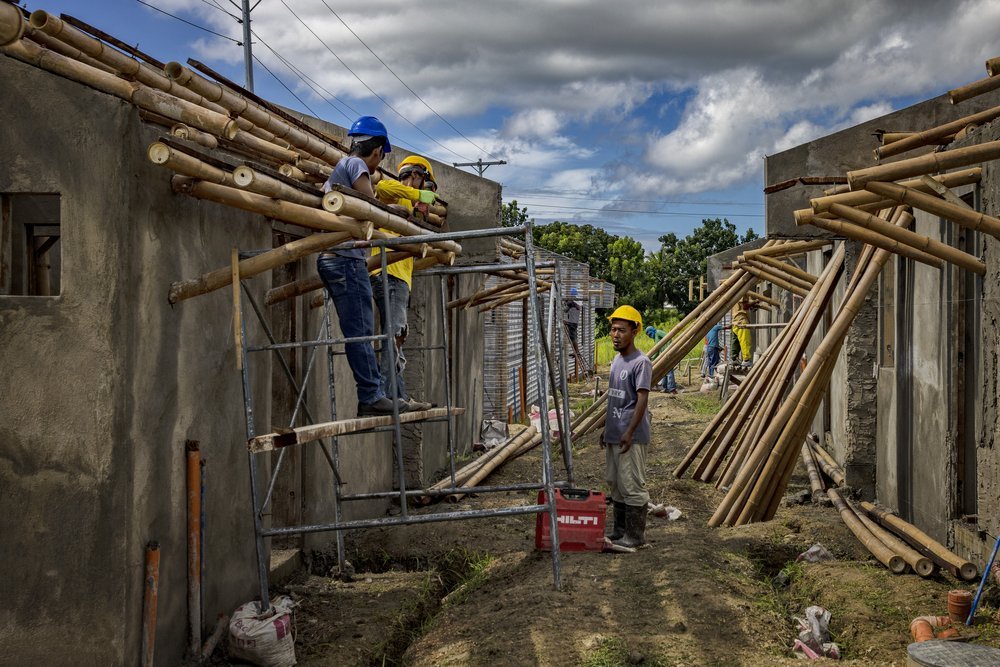Bamboo Pioneers: A Decade of Building Stronger Communities
As we celebrate the 10-year anniversary of the BASE Bahay Foundation, we look back on a decade of groundbreaking work in bamboo construction, transforming lives of thousands of low-income families through innovative and affordable housing solutions.
Building a Sustainable Future with Bamboo
The Hilti Foundation has a long-standing commitment to innovating and using sustainable and affordable housing solutions. Bamboo – a rapidly growing renewable with exceptional environmental benefits – stands at the center of this engagement. Founded in 2014, the BASE Bahay Foundation leads a global movement of builders, researchers, entrepreneurs, and policy makers aiming to make bamboo a standard material for construction, addressing the global housing crisis with its dire consequences for families in need.
“Bamboo is the solution for tropical countries like the Philippines, like Southeast Asia, like South America, like Central America, where there is a lot of bamboo.”
– Luis Felipe Lopez, General Manager of BASE
Luis Felipe Lopez, General Manager of BASE Bahay, grew up in the coffee region of Colombia, where bamboo has long been a common building material for houses. He remembers several earthquakes in the region. Events that made him wonder how these more than 100-year-old bamboo houses could withstand the force of nature. In 1999, there was a major earthquake that killed many people, but again, the bamboo houses survived. "At that time, I was writing my thesis on bamboo frame construction, and I knew that this subject would no longer be a research project for my thesis, but my life's work.” In 2012, the civil engineer was approached by the Hilti Foundation to work for them as a consultant and test the bamboo technology in the Philippines. Two years later, in 2014 BASE Bahay was founded and has since then evolved into a global competence center for bamboo. “It is important to use the material correctly so that it remains stable in the long term,” Luis emphasizes. This is the case with the Cement-Bamboo Frame Technology (CBFT), developed by BASE, a hybrid construction method that integrates the natural flexibility and strength of bamboo with the structural benefits of cement which also brings environmental benefits: “So if we build a house with cement and bamboo frame technology, we can reduce carbon emissions by up to 70 percent per house we build – that’s according to a study we did with ETH Zurich.”



Bringing this knowledge to the ground, the process of constructing durable and safe bamboo homes begins with the careful selection of the appropriate bamboo species. Once selected, each bamboo pole undergoes meticulous treatment and preparation to ensure it meets the high standards required for construction. These treated poles are then crafted into robust frames, which are subsequently filled with concrete, forming the strong skeleton of the building. This method not only guarantees structural integrity but also allows for a quick and adaptable assembly process, resulting in homes that are both resilient and aesthetically pleasing.
The Life-Changing Impact of Bamboo Homes
In regions like the Philippines and Nepal, where housing shortages and natural disasters are prevalent, our bamboo houses offer safe, resilient shelters for many families. Pramila who lives in Nepal, experienced firsthand the difficulties of living in a fragile home, made of mud and bamboo. Her old house constantly faced threats from rain and potential collapse, making daily life a struggle and depriving her children of basic sanitation facilities. Everything changed when they moved into a new bamboo house, applying our technology in Nagar Gaurav village.
"Having a stable home has left a profound and positive impact on our lives," Pramila shared. "It fills my heart with pride to see my children grow up in a safe and nurturing environment. I'm grateful for the opportunities I've had and will continue to strive for a better future for my family and community."
These homes empower communities with pride and ownership as future homeowners actively participate in building their own houses. Additionally, the construction process often involves training for local workers which creates jobs and develops skills for future projects.
“Our research, along with feedback from the families living in our bamboo houses, confirms its profound impact. These homes offer more than just shelter—they provide a foundation for a better life, enhancing education, livability, and a true sense of safety for the families we serve.”
- Johann Baar, Director Affordable Housing & Technology, Hilti Foundation.
Looking Forward to the Future
As we celebrate this 10-year milestone of BASE, we remain steadfast in our mission to promote sustainable housing solutions. We will continue to innovate, collaborate, and advocate for bamboo construction, ensuring that more communities can experience the benefits of our work. The journey of the BASE Bahay Foundation is a testament to what can be achieved through dedication, innovation, and a shared vision for a better future.
BASE – Technology provider for affordable housing
Initiated in 2014, the Hilti Foundation’s BASE Bahay Foundation in the Philippines has become an eminent global hub for bamboo construction expertise. Showcasing bamboo's role as a material for the future, BASE propels major projects, spearheads research and offers government-accredited training, setting the standard for eco-friendly, disaster-resilient and affordable housing solutions. BASE's journey began with the aim to foster independent bamboo treatment centers to provide superior engineered bamboo. Now, this ambition has evolved into catalyzing a worldwide shift, rallying entrepreneurs, policymakers and scholars to recognize bamboo as the go-to material for affordable housing. In addition, BASE is dedicated to cultivating a comprehensive bamboo building sector that boosts local economies and empowers public, private and third sector partners to leverage this technology for mass, low-cost construction.
